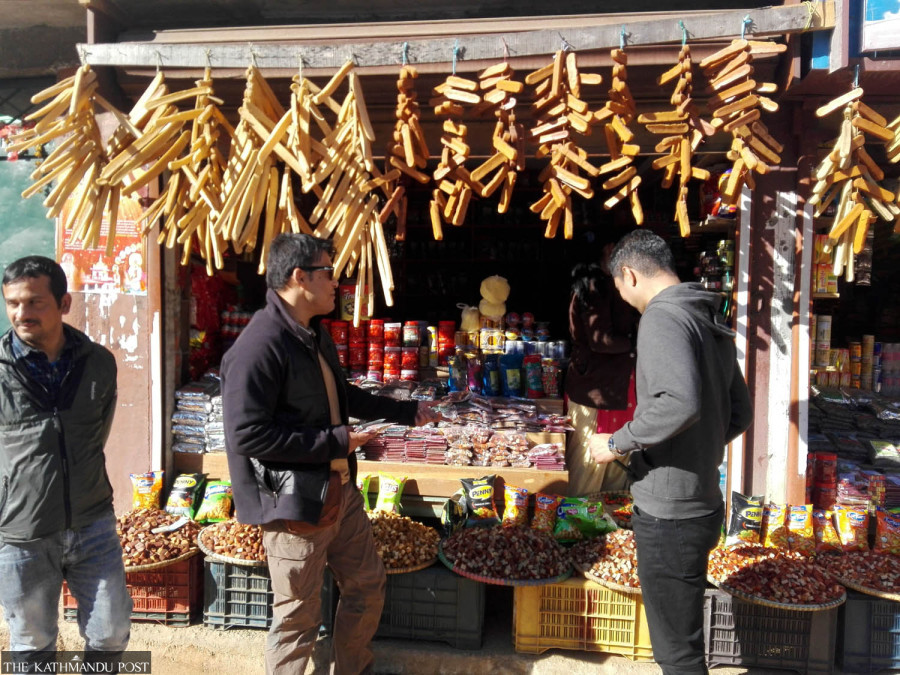Editorial
Tapping milk markets
A better supply chain between dairy farmers, DDC and exporters of dairy products is the need of the hour.
Nepal’s dairy sector has for long been under financial strain. The cost of milk and milk products has spiked so much that many households have cut down on (or entirely stopped) their consumption. The price of processed milk, which was Rs76 a litre in January 2022, has climbed up to Rs120 a litre. Dairy products from Uttar Pradesh of India that are comparatively cheaper (INR62 or Rs100 a litre) are also smuggled into the country. As a result of reduced demand and steady imports of cheap products, the state-owned Dairy Development Corporation now has a stockpile of 600 tonnes of butter and 500 tonnes of powdered milk, and the farmers are yet to get Rs580 million the cash-strapped DDC owes them. Farmers, dismayed by the delays in payment, have often had to take to the streets.
In an effort to settle the problem, the DDC has started exploring domestic private as well as international markets. To start with, it has agreed to supply 1,000 kg of raw cheese or whey (used to make chhurpi which is also called hard cheese) to a private company daily, starting December 30. The DDC will need 10,000 litres of milk a day to do so. The company, Himalayan Dog Chew, owned by the Manaram Group, exports chhurpi to the United States. Known as dog chew in the West, chhurpi is quite popular and in high demand among the owners of pooches in the US and Canada. But exporters in Nepal have struggled to meet the demand. So the deal between the private company and the DDC couldn’t have come at a better time.
The dairy corporation has, for the first time, collaborated with the private sector to sell its products. But there’s still a lot of work to be done. As reported in Kantipur, the Post’s sister publication, eastern Nepal has a huge potential to export hard cheese, and some small dairy firms and farmers, with their own efforts, are selling these products in India without branding them. If Nepal could brand them and strike multiple such partnerships with more private companies in the countries in its immediate neighborhood, it could be to the benefit of both the DDC and the dairy farmers.
Exporting milk products with the help of the private sector could bring relief to the farmers and the broader dairy industry. However, the success of this initiative is contingent on strong coordination between private companies and farmers. To facilitate this, the dairy corporation should establish a clear mechanism to get the milk from the farmers, who are at the start of the supply chain, to the exporters, who are at the end. There should also be a lot more coordination. For instance, while the demand for chhurpi is healthy, the butter that emerges during dog chew production doesn’t get the market. As the DDC is also planning to export butter to Tibet and to the larger Chinese markets, establishing a seamless channel of trade and communication between the farmers, the DDC and the private buyers would be vital. If China agrees to Nepal’s export proposal, experts say that the DDC’s products will not stockpile. With a little more thought put into the process, it could be a win-win prospect for all three sides.




 16.58°C Kathmandu
16.58°C Kathmandu














